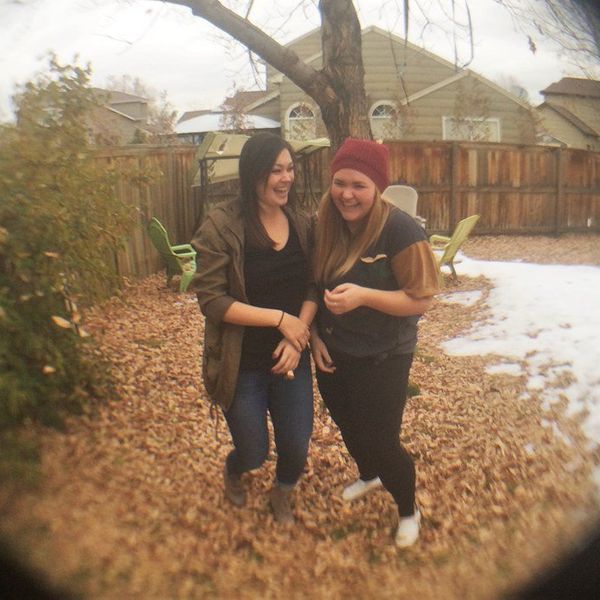Human beings affect the people around them through the way they act, feel and perceive. Affects are something of a continuous notion, that of which is occurring all the time without you actually being mentally aware of it occurring. To exist is to affect the world. As a result, everything we say or do, whether it be positive, negative or neutral, creates an affect to the ones around us.
Spinoza expands a lot on the topic of affect and how it works. He says, “If we imagine that someone toward whom we have had no affect affects a thing like us with joy, we shall be affected with love toward him. On the other hand, if we imagine him to affect it with sadness, we shall be affected with hate toward him”. What he means by this is that when something positive is said or given to someone, that someone will respond in a positive way whereas if something negative is said or given to someone, then that someone will respond in a negative way. For example, if a person compliments another person, the natural response is one of happiness. It seems unlikely for someone to be hateful towards someone who says something sweet about them. And it goes the same way for the opposite situation as well. If someone points out a flaw of another person, then that person will find that to be very rude and respond in a hateful, negative manner.
In this particular quote thought, this situation is specific toward someone who is being affected by someone that they previously had no affect from before. So in other words, this is the case for strangers. It is different when it comes to someone whom you are close to, or are already affected by. For example, say you ran into your ex-partner whom you were strongly hurt by, and they complimented you. While in some situations it could be possible that you feel joy with the idea that it was something you were looking for or hoping to here, it is usually not the case. The more likely of a response would be one of hate or disgust. The response it flipped in this situation. The ex-partner’s compliment was taken as an insult, which means that the positive created a negative affect. An example of the opposite situation could be if that ex-partner told you of how sad and lonely they are, and affect received could be one of joy. Their pain brings you joy because there is some sort of satisfaction when someone you strongly dislike is doing worse than yourself. This is going from a negative to positive affect.
Socially, the overall moral standing that we have as human beings is to strive for a positive affect. Spinoza says, “We strive to further the occurrence of whatever we imagine will lead to joy, and to avert or destroy what we imagine is contrary to it, or will lead to sadness”. What he is saying is that we constantly try to create a positive affect on others rather than the opposite. People do this by being polite to others, being understanding and being attentive. Most don’t actually think about the fact that we forcibly put on this positive mask in public simply because we all know that it is the morally right thing to do. Should you not strive for a positive affect, then the harsh judgment of others come into play. Especially since it is in a public and social environment, even if you negatively affecting one person, does not mean that others are also being affected in the same way indirectly. An example of this could be at a store, and say there is a customer checking out their item at the cash register. The customer complains and rudely tells the employee to hurry up. As this is naturally a negative affect on the employee, the other people in line behind the customer were subject to seeing and hearing the previous scene. These people could be negatively affected in the fact that they feel sorry and sad for the employee and also mad at the customer for being so rude. In a public space like that, living in a society where it is the morally correct thing to do to push for a positive affect, a single negative affect could actually become multiple negative affects.
In another scenario, Spinoza also talked about how if we were to destroy or get rid of what we hate or makes us, then it will lead to a positive affect in which we are glad of its disappearance. An example of this could be in a classroom. If the teacher cancels the student’s homework assignment, then all of the students would feel happiness and joy. Because the homework was taken away, it created a positive affect on every student because it did not apply to just one person. Had the students all have to do the homework, they would react negatively. That is why students walk into class hoping and wishing that there won’t be any homework, because it is a negative affect that they are well aware of being that it is negative, so they wish to avoid it as much as possible.
There is also a sense joy we receive in creating a positive affect. Should you affect someone with joy, their joy could affect you with joy as well, since you sought to give out that affect on purpose. Spinoza states, “If someone has done something which he imagines affects others with joy, he will be affected with joy accompanied by the idea of himself as cause, or be will regard himself with joy. If, on the other hand, he has done something which he imagines affects others with sadness, he will regard himself with sadness”. What he is saying is that for some people or in some occasions, the way we affect others creates the same affect on us. An example of this could be philanthropy. Many people volunteer for philanthropy work or donate to charities to both help a cause but to also make themselves feel better. When you put into action ways of helping something or someone who has it harder than you, there is definitely a sense of pride when you give something of yours to them. Knowing that you helped them is what created a double affect.
On the other hand, there is also the negative side as well. Say, for example, you are a student doing a group project with other students. On the due date, everyone brought in their portion of the project, but you forgot to do your portion. This made your group very upset, leaving you upset as well, knowing that you let them down. It was because of the fact that you were well aware of your negative affect you gave your group that because you feel that same affect. That also plays into the standard that society sets of the constant need of a positive affect. The fact that you are aware that they should be feeling a positive affect when they aren’t being what creates a negative affect on yourself as well.
The reason why we as a society have decided that we should want these positive affects is because it makes no sense to want a negative affect. To feel sad or hate towards something are feelings that we want to avoid because they don’t have a benefit to us. We want positive affects because they are just that. Being happy is something that we all want. And being happy can lead to progression of feelings such as love, which is something that we also constantly search for as human beings. Plato talks about love being a form of inborn desire for pleasure. With this loves comes with many levels or types of love, which is when our affects become important. The way you give affect and receive it is the way you determine or create what type of love is forming. It is impossible to find love in general when you constantly full of hate or sadness. This is why affects are so important, because they depict the kind life that we live. The affects we give other people help shape their life whether it be positive or negative. The affects that other people give to us shape our lives as well.
Putting things into perspective as such, we see why it is important for us as individuals to create specific types of affects for people. We all want to be affected a certain way, and the only way to be given that affect is if we give that affect to others as well. It is all a continuous cycle that we are partaking in at every moment.





















